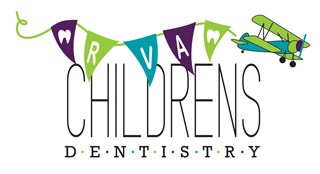You’ve got cavities! Just hearing the phrase induces anxiety in many adults. Children are no different. In fact, the different sounds and sights of the dental office can be quite overwhelming for young children. That is why many parents are now hearing about sedation as an option for treating their child’s cavities. But what is sedation? And, is this the right choice for your child? These are important questions each parent should discuss
with her child’s dentist before making any decisions.
At some point, most parents will be faced with a child who needs dental treatment for cavities. According to the U.S. Department of Health and Human Services, dental decay is the most common infectious disease of childhood. More than 40 percent of children will have cavities requiring treatment by the time they start kindergarten. Studies have shown that children who have positive dental experiences are far more likely to continue to seek dental care as adults. So, as dentists, our goal is to partner with parents to not only care for your child’s teeth, but to ensure a positive emotional experience which can help lead to lifelong dental health.
There are three major options available to help achieve this goal of dental care without any negative associations. The first option is traditional treatment in the dental chair. Many children, especially older children and those requiring simple procedures, can be treated this way. Because their emotional and mental abilities are still developing, some children are not able to cooperate for a dentist to safely provide treatment traditionally. Dental sedation, a second option, can be beneficial for these children, particularly young children, children with high degrees of anxiety, or those in need of more complicated procedures. In extreme cases, children may need to be treated under general anesthesia – the third major option available.
Because dental sedation helps ease a child’s anxiety, it has become an increasingly popular option with both parents and dentists. But, the information available about dental sedation can be confusing and overwhelming. Even the term dental sedation is confusing as it can mean many different things. Dental sedation is actually the use of any medication to help relax a patient or decrease anxiety. Medications can range from very mild sedatives to combinations of drugs that make a child groggy enough to fall asleep.
As a parent, what do you need to know to make an informed decision? Some questions that should be discussed with your child’s dentist include:
What kind of dental treatment does my child need? Many children are able to cooperate for short, simple procedures without sedation or with just laughing gas. Laughing gas, or nitrous oxide, is a very mild sedative that relaxes a child only while he is being treated. There are no effects on the child when he leaves the dental office, making it a very safe method to treat a slightly anxious child. When a child is extremely anxious or needs a complex procedure, he may need a stronger sedative to help him remain calm long enough for the dentist to provide treatment.
What kind of sedation is being used, and how will it benefit my child? As with any medication given to your child, it is important to consider whether it is necessary. As a parent, you know better than the dentist your child’s temperament and how she reacts to stressful situations. Discuss this with your dentist, along with the risks and benefits of all options. This will help you and your dentist decide what kind of sedation, if any, will be beneficial for your child.
Is sedation safe for my child? For most healthy children, sedation is a safe procedure. Your dentist should review your child’s medical history with you and discuss any conditions that are specific to your child. One of the most important things you can do to make sure your child is safe is to follow any pre-sedation instructions you are given. These are intended to help make your child’s experience safe and effective.
Does the dentist have training in sedation? Your dentist should be able to tell you about her training and experience with sedation. Many dentists have additional training that qualifies them for a license in conscious sedation.
What safety equipment is available?Equipment to monitor your child’s breathing and heart rate during treatment, if necessary, should be present. Your dentist should also have emergency equipment available and be trained in its use.
Because every child’s situation is unique, it is important to have an open discussion with your dentist prior to treatment. If you still have concerns, you should get a second opinion. As much as you want to be comfortable with the treatment your child is receiving, your dentist wants you to be comfortable, too. Ultimately, whether your child is being treated traditionally or with some form of sedation, the best results are achieved when you and your dentist work as a team.





